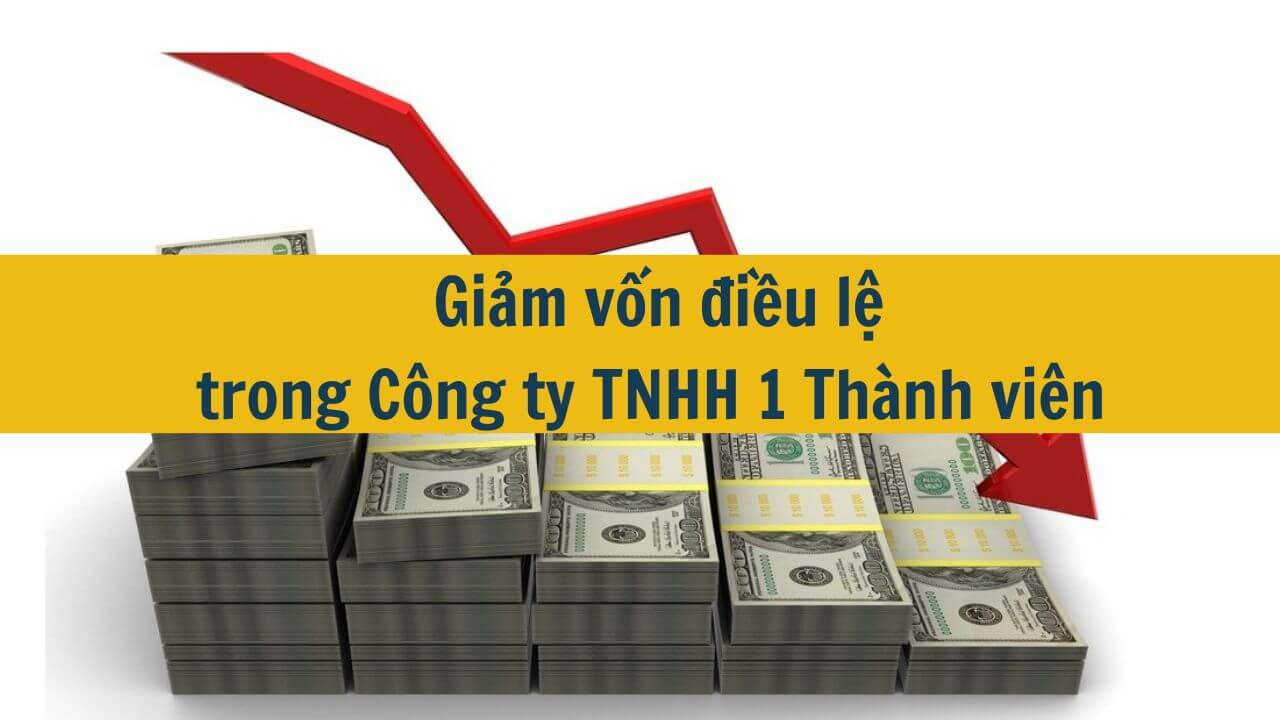 Tìm kiếm
Tìm kiếm
Chương VI Nghị định 122/2021/NĐ-CP: Thẩm quyền xử phạt vi phạm hành chính
| Số hiệu: | 122/2021/NĐ-CP | Loại văn bản: | Nghị định |
| Nơi ban hành: | Chính phủ | Người ký: | Lê Minh Khái |
| Ngày ban hành: | 28/12/2021 | Ngày hiệu lực: | 01/01/2022 |
| Ngày công báo: | 10/01/2022 | Số công báo: | Từ số 45 đến số 46 |
| Lĩnh vực: | Đầu tư, Vi phạm hành chính | Tình trạng: | Còn hiệu lực |
TÓM TẮT VĂN BẢN
Văn bản tiếng việt
Văn bản tiếng anh
1. Thanh tra viên, người được giao thực hiện nhiệm vụ thanh tra chuyên ngành đang thi hành công vụ có quyền:
a) Phạt cảnh cáo;
b) Phạt tiền đến 1.000.000 đồng.
2. Chánh thanh tra Sở Kế hoạch và Đầu tư, Trưởng đoàn thanh tra chuyên ngành cấp sở có quyền:
a) Phạt cảnh cáo;
b) Phạt tiền đến 50.000.000 đồng đối với hành vi vi phạm trong lĩnh vực đăng ký doanh nghiệp; đến 100.000.000 đồng đối với hành vi vi phạm trong lĩnh vực đấu thầu, đầu tư, quy hoạch;
c) Áp dụng các biện pháp khắc phục hậu quả được quy định tại Nghị định này.
3. Trưởng đoàn thanh tra chuyên ngành Bộ Kế hoạch và Đầu tư có quyền:
a) Phạt cảnh cáo;
b) Phạt tiền đến 70.000.000 đồng đối với hành vi vi phạm trong lĩnh vực đăng ký doanh nghiệp; đến 200.000.000 đồng đối với hành vi vi phạm trong lĩnh vực đấu thầu, đầu tư; đến 350.000.000 đồng đối với hành vi vi phạm trong lĩnh vực quy hoạch;
c) Áp dụng các biện pháp khắc phục hậu quả được quy định tại Nghị định này.
4. Chánh thanh tra Bộ Kế hoạch và Đầu tư có quyền:
a) Phạt cảnh cáo;
b) Phạt tiền đến 100.000.000 đồng đối với hành vi vi phạm trong lĩnh vực đăng ký doanh nghiệp; đến 300.000.000 đồng đối với hành vi vi phạm trong lĩnh vực đấu thầu, đầu tư; đến 500.000.000 đồng đối với hành vi vi phạm trong lĩnh vực quy hoạch;
c) Áp dụng các biện pháp khắc phục hậu quả được quy định tại Nghị định này.
b) Phạt tiền đến 10.000.000 đồng.
2. Chủ tịch Ủy ban nhân dân cấp huyện có quyền:
a) Phạt cảnh cáo;
b) Phạt tiền đến 50.000.000 đồng đối với hành vi vi phạm trong lĩnh vực đăng ký doanh nghiệp; đến 150.000.000 đồng đối với hành vi vi phạm trong lĩnh vực đấu thầu, đầu tư; đến 200.000.000 đồng đối với hành vi vi phạm trong lĩnh vực quy hoạch;
c) Áp dụng các biện pháp khắc phục hậu quả được quy định tại Nghị định này.
3. Chủ tịch Ủy ban nhân dân cấp tỉnh có quyền:
a) Phạt cảnh cáo;
b) Phạt tiền đến 100.000.000 đồng đối với hành vi vi phạm trong lĩnh vực đăng ký doanh nghiệp; đến 300.000.000 đồng đối với hành vi vi phạm trong lĩnh vực đấu thầu, đầu tư; đến 500.000.000 đồng đối với hành vi vi phạm trong lĩnh vực quy hoạch;
c) Áp dụng các biện pháp khắc phục hậu quả được quy định tại Nghị định này.
1. Công chức Thuế đang thi hành công vụ có quyền:
a) Phạt cảnh cáo;
b) Phạt tiền đến 1.000.000 đồng.
2. Đội trưởng Đội Thuế có quyền:
a) Phạt cảnh cáo;
b) Phạt tiền đến 5.000.000 đồng.
3. Chi cục trưởng Chi cục Thuế có quyền:
a) Phạt cảnh cáo;
b) Phạt tiền đến 50.000.000 đồng đối với hành vi vi phạm trong lĩnh vực đăng ký doanh nghiệp, đầu tư;
c) Áp dụng các biện pháp khắc phục hậu quả được quy định tại Nghị định này.
4. Cục trưởng Cục Thuế có quyền:
a) Phạt cảnh cáo;
b) Phạt tiền đến 100.000.000 đồng đối với hành vi vi phạm trong lĩnh vực đăng ký doanh nghiệp; đến 140.000.000 đồng đối với hành vi vi phạm trong lĩnh vực đầu tư;
c) Áp dụng các biện pháp khắc phục hậu quả được quy định tại Nghị định này.
5. Tổng cục trưởng Tổng cục Thuế có quyền:
a) Phạt cảnh cáo;
b) Phạt tiền đến 100.000.000 đồng đối với hành vi vi phạm trong lĩnh vực đăng ký doanh nghiệp; đến 300.000.000 đồng đối với hành vi vi phạm trong lĩnh vực đầu tư;
c) Áp dụng các biện pháp khắc phục hậu quả được quy định tại Nghị định này.
1. Kiểm soát viên thị trường đang thi hành công vụ có quyền:
a) Phạt cảnh cáo;
b) Phạt tiền đến 1.000.000 đồng.
2. Đội trưởng Đội Quản lý thị trường, Trưởng phòng Nghiệp vụ thuộc Cục Nghiệp vụ quản lý thị trường có quyền:
a) Phạt cảnh cáo;
b) Phạt tiền đến 50.000.000 đồng đối với hành vi vi phạm trong lĩnh vực đăng ký doanh nghiệp, đầu tư;
c) Áp dụng các biện pháp khắc phục hậu quả được quy định tại Nghị định này.
3. Cục trưởng Cục Quản lý thị trường cấp tỉnh, Cục trưởng Cục Nghiệp vụ quản lý thị trường thuộc Tổng cục Quản lý thị trường có quyền:
a) Phạt cảnh cáo;
b) Phạt tiền đến 100.000.000 đồng đối với hành vi vi phạm trong lĩnh vực đăng ký doanh nghiệp, đầu tư;
c) Áp dụng các biện pháp khắc phục hậu quả được quy định tại Nghị định này.
4. Tổng cục trưởng Tổng cục Quản lý thị trường có quyền:
a) Phạt cảnh cáo;
b) Phạt tiền đến 100.000.000 đồng đối với hành vi vi phạm trong lĩnh vực đăng ký doanh nghiệp; đến 300.000.000 đồng đối với hành vi vi phạm trong lĩnh vực đầu tư;
c) Áp dụng các biện pháp khắc phục hậu quả được quy định tại Nghị định này.
1. Những người có thẩm quyền của Thanh tra Kế hoạch và Đầu tư có quyền xử phạt vi phạm hành chính đối với hành vi vi phạm hành chính quy định tại Nghị định này theo thẩm quyền quy định tại Điều 73 Nghị định này và chức năng, nhiệm vụ, quyền hạn được giao.
2. Chủ tịch Ủy ban nhân dân các cấp có quyền xử phạt vi phạm hành chính đối với hành vi vi phạm hành chính quy định tại Nghị định này theo thẩm quyền quy định tại Điều 74 Nghị định này và chức năng, nhiệm vụ, quyền hạn được giao.
3. Những người có thẩm quyền của cơ quan Thuế có quyền xử phạt vi phạm hành chính đối với hành vi vi phạm hành chính quy định tại khoản 2 Điều 16; Điều 18; khoản 2 Điều 22; Điều 30; Điều 43; khoản 4 Điều 46; điểm a khoản 2 Điều 48; điểm a khoản 1 Điều 50; điểm a khoản 1 Điều 54; Điều 56; Điều 62; Điều 64; điểm c khoản 1 và khoản 2 Điều 65; Điều 66; khoản 3 Điều 67 và Điều 69 Nghị định này theo thẩm quyền quy định tại Điều 75 và chức năng, nhiệm vụ, quyền hạn được giao.
4. Những người có thẩm quyền của cơ quan Quản lý thị trường có quyền xử phạt vi phạm hành chính đối với hành vi vi phạm hành chính quy định tại khoản 3 Điều 16; khoản 1 Điều 17; khoản 3 Điều 19; Điều 43; Điều 44; khoản 4 Điều 46; Điều 48; Điều 49; Điều 50; điểm c khoản 2 Điều 52; Điều 54; điểm d và điểm đ khoản 1 Điều 56; điểm d khoản 1 Điều 60; Điều 62; Điều 63; Điều 64; điểm c và điểm d khoản 1, khoản 2 Điều 65; Điều 66 và Điều 69 Nghị định này theo thẩm quyền quy định tại Điều 76 và chức năng, nhiệm vụ, quyền hạn được giao.
5. Trong trường hợp vi phạm hành chính thuộc thẩm quyền xử phạt của nhiều người thì việc xử phạt vi phạm hành chính do người thụ lý đầu tiên thực hiện.
1. Người có thẩm quyền xử phạt quy định tại Điều 73, Điều 74, Điều 75 và Điều 76 của Nghị định này.
2. Công chức thuộc Ủy ban nhân dân các cấp được giao nhiệm vụ kiểm tra, phát hiện vi phạm hành chính trong những lĩnh vực quy định tại Nghị định này.
3. Công chức thuộc cơ quan thanh tra Kế hoạch và Đầu tư được phân công thực hiện nhiệm vụ thanh tra, kiểm tra chuyên ngành độc lập hoặc theo đoàn thanh tra.
4. Công chức thuộc các cơ quan quản lý nhà nước được giao nhiệm vụ kiểm tra trong các lĩnh vực quản lý nhà nước về: đầu tư (bao gồm: đầu tư công, đầu tư kinh doanh tại Việt Nam, đầu tư kinh doanh từ Việt Nam ra nước ngoài, đầu tư theo phương thức đối tác công tư (PPP)), đấu thầu, đăng ký doanh nghiệp, quy hoạch.
5. Trong một vụ việc có nhiều hành vi vi phạm, người có thẩm quyền đang thi hành công vụ, nhiệm vụ phải lập ngay biên bản vi phạm hành chính đối với hành vi đã được xác định là vi phạm hành chính thuộc lĩnh vực, địa bàn quản lý của mình.
Trường hợp vụ việc vượt quá thẩm quyền xử phạt của người lập biên bản thì chuyển bản gốc biên bản vi phạm hành chính cùng tang vật, phương tiện vi phạm hành chính (nếu có) đến người có thẩm quyền xử phạt để tiến hành xử phạt theo quy định tại khoản 5 Điều 58 Luật Xử lý vi phạm hành chính.
Đối với hành vi có dấu hiệu vi phạm hành chính không thuộc lĩnh vực, địa bàn quản lý của mình thì người có thẩm quyền đang thi hành công vụ, nhiệm vụ phải lập biên bản làm việc để ghi nhận sự việc và chuyển ngay biên bản đến người có thẩm quyền.
POWER TO IMPOSE PENALTIES FOR ADMINISTRATIVE VIOLATIONS
Article 73. The power to impose penalties of inspectors of planning and investment authorities
1. Inspectors and persons assigned to carry out specialized inspections in the performance of their duty are entitled to:
a) issue warnings;
b) impose a maximum fine of VND 1,000,000.
2. Chief Inspectors of the Provincial Departments of Planning and Investment and chiefs of provincial departments are entitled to:
a) issue warnings;
b) impose a maximum fine of VND 50,000,000 for violations against regulations on enterprise registration; impose a maximum fine of VND 100,000,000 for violations against regulations on bidding, investment and planning;
c) enforce the remedial measures mentioned in this Decree.
3. Chiefs of inspectorates of the Ministry of Planning and Investment are entitled to:
a) issue warnings;
b) impose a maximum fine of VND 70,000,000 for violations against regulations on enterprise registration; impose a maximum fine of VND 200,000,000 for violations against regulations on bidding and investment; impose a maximum fine of VND 350,000,000 for violations against regulations on planning;
c) enforce the remedial measures mentioned in this Decree.
4. Chief Inspector of the Ministry of Planning and Investment is entitled to:
a) issue warnings;
b) impose a maximum fine of VND 100,000,000 for violations against regulations on enterprise registration; impose a maximum fine of VND 300,000,000 for violations against regulations on bidding and investment; impose a maximum fine of VND 500,000,000 for violations against regulations on planning;
c) enforce the remedial measures mentioned in this Decree.
Article 74. The power to impose penalties of People’s Committees at all levels
1. Chairmen/Chairwomen of communal People’s Committees are entitled to:
a) issue warnings;
b) impose a maximum fine of VND 10,000,000.
2. Chairmen/Chairwomen of district-level People’s Committees are entitled to:
a) issue warnings;
b) impose a maximum fine of VND 50,000,000 for violations against regulations on enterprise registration; impose a maximum fine of VND 150,000,000 for violations against regulations on bidding and investment; impose a maximum fine of VND 200,000,000 for violations against regulations on planning;
c) enforce the remedial measures mentioned in this Decree.
3. Chairmen/Chairwomen of provincial People’s Committees are entitled to:
a) issue warnings;
b) impose a maximum fine of VND 100,000,000 for violations against regulations on enterprise registration; impose a maximum fine of VND 300,000,000 for violations against regulations on bidding and investment; impose a maximum fine of VND 500,000,000 for violations against regulations on planning;
c) enforce the remedial measures mentioned in this Decree.
Article 75. The power to impose penalties of tax authorities
1. Tax officials in the performance of their duty are entitled to:
a) issue warnings;
b) impose a maximum fine of VND 1,000,000.
2. Tax team leaders are entitled to:
a) issue warnings;
b) impose a maximum fine of VND 5,000,000.
3. Directors of Sub-departments of taxation are entitled to:
a) issue warnings;
b) impose a maximum fine of VND 50,000,000 for violations against regulations on enterprise registration and investment;
c) enforce the remedial measures mentioned in this Decree.
4. Directors of provincial Departments of Taxation are entitled to:
a) issue warnings;
b) impose a maximum fine of VND 100,000,000 for violations against regulations on enterprise registration; impose a maximum fine of VND 140,000,000 for violations against regulations on investment;
c) enforce the remedial measures mentioned in this Decree.
5. The Director General of General Department of Taxation is entitled to:
a) issue warnings;
b) impose a maximum fine of VND 100,000,000 for violations against regulations on enterprise registration; impose a maximum fine of VND 300,000,000 for violations against regulations on investment;
c) enforce the remedial measures mentioned in this Decree.
Article 76. The power to impose penalties of market surveillance authorities
1. Market surveillance officials in the performance of their duty are entitled to:
a) issue warnings;
b) impose a maximum fine of VND 1,000,000.
2. Market surveillance team leaders and Head of Professional Division affiliated to the Market Surveillance Operations Department are entitled to:
a) issue warnings;
b) impose a maximum fine of VND 50,000,000 for violations against regulations on enterprise registration and investment;
c) enforce the remedial measures mentioned in this Decree.
3. Directors of provincial Market Surveillance Departments and Director General of the Market Surveillance Operations Department affiliated to the Vietnam Directorate of Market Surveillance are entitled to:
a) issue warnings;
b) impose a maximum fine of VND 100,000,000 for violations against regulations on enterprise registration and investment;
c) enforce the remedial measures mentioned in this Decree.
4. The Director General of Vietnam Directorate of Market Surveillance is entitled to:
a) issue warnings;
b) impose a maximum fine of VND 100,000,000 for violations against regulations on enterprise registration; impose a maximum fine of VND 300,000,000 for violations against regulations on investment;
c) enforce the remedial measures mentioned in this Decree.
Article 77. Delegation of power to impose penalties
1. Competent persons of planning and investment authorities have the power to impose penalties for the administrative violations specified in this Decree within their power specified in Article 73 of this Decree and within the scope of their functions, tasks, and entitlements.
2. Chairmen/Chairwomen of People’s Committees at all levels have the power to impose penalties for the administrative violations specified in this Decree within their power specified in Article 74 of this Decree and within the scope of their functions, tasks and entitlements.
3. Competent persons of tax authorities have the power to impose penalties for the administrative violations specified Clause 2 Article 16; Article 18; Clause 2 Article 22; Article 30; Article 43; Clause 4 Article 46; Point a Clause 2 Article 48; Point a Clause 1 Article 50; Point a Clause 1 Article 54; Article 56; Article 62; Article 64; Point c Clause 1 and Clause 2 Article 65; Article 66; Clause 3 Article 67 and Article 69 of this Decree within their power specified in Article 75 of this Decree and within the scope of their functions, tasks, and entitlements.
4. Competent persons of market surveillance authorities have the power to impose penalties for the administrative violations specified Clause 3 Article 16; Clause 1 Article 17; Clause 3 Article 19; Article 43; Article 44; Clause 4 Article 46; Article 48; Article 49; Article 50; Point c Clause 2 Article 52; Article 54; Points d and dd Clause 1 Article 56; Point d Clause 1 Article 60; Article 62; Article 63; Article 64; Points c and d Clause 1, Clause 2 Article 65; Article 66 and Article 69 of this Decree within their power specified in Article 76 of this Decree and within the scope of their functions, tasks, and entitlements.
5. If multiple persons are entitled to impose a penalty, the penalty shall be imposed by the first person who examines the case.
Article 78. Determination of power to impose penalties
The maximum fines imposed by the persons specified in Articles 73 through 76 of this Decree are imposed upon an administrative violation committed by an organization; the maximum fine such a person may impose upon an individual is half the maximum fine imposed upon an organization.
Article 79. Power to make administrative violation records
1. The persons entitled to impose penalties specified in Articles 73 through 76 of this Decree.
2. Officials of the People’s Committees at all levels appointed to inspect and detect administrative violations that arise from the fields specified in this Decree.
3. Officials of planning and investment inspecting authorities appointed to carry out inspection or independent specialized inspections or join inspectorates.
4. Officials of regulatory authorities appointed to carry out inspections of fields under state management with respect to: investment (including public investment, business investment in Vietnam, outward business investment, PPP investment), bidding, enterprise registration and planning.
5. If a case involves multiple violations, competent persons in the performance of their duty shall immediately make a record of the violation treated as an administrative violation that arises from the field or areas under their management.
If the case is beyond the power to impose penalties of the person making the record, transfer the original administrative violation record together with the exhibit or instrumentality (if any) used for committing the administrative violation to a competent person in order to impose penalties as prescribed in Clause 5 Article 58 of the Law on Penalties for Administrative Violations.
If a violation showing any sign of administrative violation does not arise from the field or area under his/her management, the competent person on his/her duty must make a record and immediately transfer it to a competent person.
Văn bản liên quan
Cập nhật
Bài viết liên quan
Cập nhật Căn cước công dân cho người đại diện theo pháp luật của công ty TNHH 1 thành viên mới nhất 2025

Cập nhật Căn cước công dân cho người đại diện theo pháp luật của công ty TNHH 1 thành viên mới nhất 2025
Cập nhật Căn cước công dân (CCCD) cho người đại diện theo pháp luật của công ty TNHH 1 thành viên là một vấn đề quan trọng đối với các doanh nghiệp, đặc biệt trong bối cảnh các yêu cầu về quản lý doanh nghiệp và các giao dịch hành chính ngày càng trở nên khắt khe hơn. Theo quy định mới nhất trong năm 2025, người đại diện theo pháp luật của các công ty cần phải thực hiện thủ tục cập nhật thông tin CCCD để đảm bảo tính hợp pháp và minh bạch trong các giao dịch liên quan. Vậy, quy trình cập nhật CCCD cho người đại diện theo pháp luật của công ty TNHH 1 thành viên được thực hiện như thế nào năm 2025? Hãy cùng tìm hiểu trong bài viết này nhé. 01/12/2024Giảm vốn điều lệ trong Công ty TNHH 1 Thành viên

Giảm vốn điều lệ trong Công ty TNHH 1 Thành viên
Giảm vốn điều lệ trong Công ty TNHH 1 thành viên là một quy trình quan trọng, thường diễn ra khi công ty muốn điều chỉnh quy mô hoạt động hoặc cải thiện tình hình tài chính. Vậy việc giảm vốn điều lệ trong Công ty TNHH 1 Thành viên được thực hiện như thế nào? Quy trình xử lý có đơn giản không? Trong bài viết này sẽ phân tích và hướng dẫn chi tiết cụ thể những vướng mắc trên. 08/11/2024Xử lý hành vi vi phạm về đầu tư trong nước và nước ngoài

Xử lý hành vi vi phạm về đầu tư trong nước và nước ngoài
Vi phạm Luật Đầu tư là hành vi trái với các quy định của pháp luật liên quan đến hoạt động đầu tư, bao gồm cả đầu tư trong nước và đầu tư nước ngoài. Những hành vi vi phạm này có thể dẫn đến các hình thức xử phạt hành chính, thậm chí là hình sự, tùy thuộc vào mức độ nghiêm trọng của hành vi. 06/11/2024Tạm ngừng kinh doanh của hộ kinh doanh

Tạm ngừng kinh doanh của hộ kinh doanh
Hộ kinh doanh là một mô hình kinh doanh của cá nhân hoặc thành viên hộ gia đình đăng ký và chịu trách nhiệm bằng toàn bộ tài sản. Ngoài ra, hộ kinh doanh không phải là doanh nghiệp. Hiện nay, loại hình hộ kinh doanh này trở nên khá phổ biến trong cuộc sống và được nhiều người lựa chọn khi tiến hành kinh doanh với mô hình nhỏ lẻ. Vậy nếu trong quá trình hoạt động, hộ kinh doanh muốn tạm ngừng hoạt động một thời gian thì cần thực hiện những bước gì và thủ tục gì? Trong bài viết này sẽ phân tích và hướng dẫn chi tiết cụ thể thủ tục tạm ngừng kinh doanh của hộ kinh doanh. 06/11/2024Thủ tục thay đổi tên cho công ty

Thủ tục thay đổi tên cho công ty
Tên công ty là nội dung cơ bản được ghi nhận trong giấy chứng nhận đăng ký doanh nghiệp. Trong quá trình hoạt động, phụ thuộc vào nhiều nguyên nhân khiến doanh nghiệp lựa chọn đổi tên công ty mình cho phù hợp với mục đích hoạt động lâu dài. Trong bài viết này sẽ phân tích và hướng dẫn chi tiết cụ thể thủ tục Thay đổi tên cho công ty. 05/11/2024Thay đổi cổ đông sáng lập trong công ty cổ phần

Thay đổi cổ đông sáng lập trong công ty cổ phần
Cổ đông sáng lập quy định tại khoản 4 Điều 4 Luật Doanh nghiệp 2020 là cổ đông sở hữu ít nhất một cổ phần phổ thông và ký tên trong danh sách cổ đông sáng lập công ty cổ phần. Hiểu đơn giản hơn, cổ đông sáng lập chính là những người góp vốn để đăng ký thành lập nên công ty cổ phần. Vậy khi thay đổi cổ đông sáng lập có cần thực hiện thủ tục thông báo đến cơ quan đăng ký kinh doanh không? Để giải đáp thắc mắc này, trong bài viết này sẽ phân tích và hướng dẫn chi tiết cụ thể thủ tục Thay đổi cổ đông sáng lập trong công ty cổ phần. 05/11/2024Một cá nhân có thể thành lập bao nhiêu doanh nghiệp tư nhân?

Một cá nhân có thể thành lập bao nhiêu doanh nghiệp tư nhân?
Việc thành lập doanh nghiệp tư nhân tại Việt Nam được quy định rõ trong Luật Doanh nghiệp 2020. Để hiểu rõ hơn về quyền hạn của cá nhân trong việc thành lập doanh nghiệp tư nhân, mức phạt khi vi phạm, và hồ sơ cần chuẩn bị, hãy cùng xem qua nội dung sau. 05/11/2024Các trường hợp hộ kinh doanh không cần đăng ký kinh doanh


 Nghị định 122/2021/NĐ-CP (Bản Word)
Nghị định 122/2021/NĐ-CP (Bản Word)
 Nghị định 122/2021/NĐ-CP (Bản Pdf)
Nghị định 122/2021/NĐ-CP (Bản Pdf)